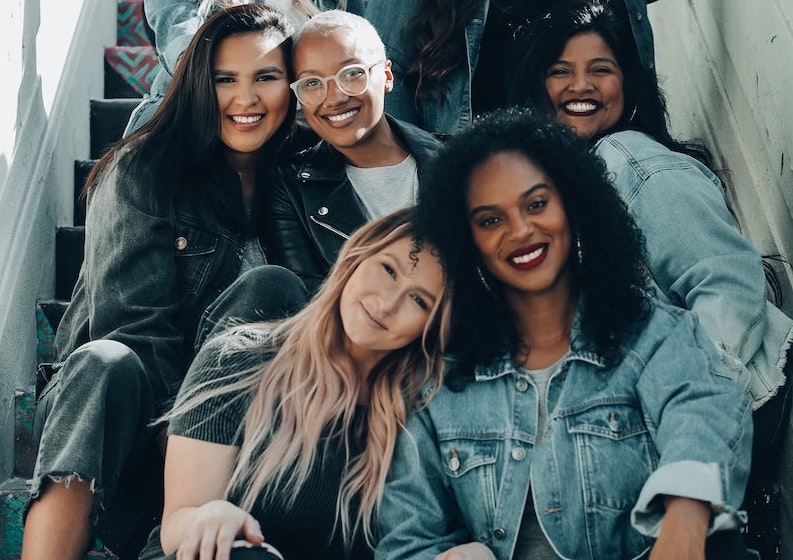
Equal Opportunity - The Debate
Why should this even be a debate? The world is broken and we need to fix it.
In light of International Women’s Day yesterday, it’s pertinent that we take stock of history, what the media is saying right now and what the truth is.
What History Says
Women were largely underrepresented in the course of history. Some argue that this is driven by Biblical points of view, others say this is shaped by culture and still others say that this is the natural order.
Claiming that women boast a supporting position is a wholly inadequate argument considering references from the Bible about the ‘Wife of Noble Character’ parable and historical context. People who use this as justification for their point of view don’t understand the essence of women in the Biblical context. Characters such as Esther, Ruth and Deborah prove otherwise.
The Quran covers many examples of independant women, which can often be taken out of context by Muslim men. The Quran highlights examples where the highest respect must be shown to women. To stir the pot further, the modern argument indicates that a hijab does not need to be worn by a woman and the three citations about a woman’s dress in the Quran are all laced with context that may not be applicable to the present day.
20th century American wealth and subsequent advertising confined women to homes. It was apparent that women largely did not need to work for their family to survive. This movement was popularised in Southern communities and Northern media to create brainwashing propaganda that robbed a generation of opportunity. We are only truly breaking out of this now and the next ten years are critical.
What the Media Says
Over the last year, mixed with COVID-19, there has been a lot of coverage from Black Lives Matter and woman empowerment. Jacinda Ardern comes to mind, praised for her acute decision making during the global pandemic. We’ve all seen the meme about her surviving an earthquake, pandemic and terrorist attack while in office. She won her second term election by a landslide.
Most recently, Meghan Markle and Harry went public. A prompt and well crafted response from the Royal Family will probably subdue the affair, yet the impact of colonial legacy remains a question on everyone’s lips.
The story of Caster Semenya was largely missed by the world and not given enough airtime in my opinion. Fair competition is no longer an objective notion. An evaluation precedes competition and all stand before a judge to know who will compete and under what conditions.
Margaret Mitchell recently left Google through a fallout around AI Ethics. Policy breaches are serious, but some policies in industry prevent progress and it’s important that these are reshaped. Margaret paved the way for a more ethical AI future and perhaps if she wasn’t a woman, her future would have taken a different turn.
What the Truth is
The majority woman vote is for change and the minority advocate for a complete revolution and new world order. A lot of men are scared of what this change might mean for them, but I don’t believe that most women are advocating for something that all men would be fearful of. The present fear is a lie as to what change means and this perception needs to be eradicated.
Yes it’s true, for woman advancement to be optimal some men will need to step aside. I’m advocating for that and I’ll attempt to demonstrate it. It is also true that most of the female pioneers discussed above have faced unnatural setbacks due to their gender.
This probably makes me ‘pro fem’, but I can relate because I would hate to get discounted from an opportunity because I might have a baby soon.
Let’s Get Practical
How does change happen and what can be done now? I argue that organisational change is paramount, as organisations are drivers for society.
Example A:
A fintech needs to build up a bench of candidates in their ATS (Applicant Tracking System). They currently have 20% women and 80% men. They need to fill a developer position and take each application on merit. A simplistic model is to not consider male applicats at the present time. Give honest feedback about why they weren’t considered. Encourage them and assure them they will be missed until the next cohort.
Example B:
Plan a budget for maternity leave and make a standard contribution for maternity benefit, which is baked into the finances in proportion with the targeted ratio. I.e. set up systems that make the targets possible rather than setting human decision makers up for failure.
Final Remarks
In summary, history supports female empowerment and equal social standing. Periods of history excluded women, but this position was often restored in time.
Women are speaking out in the media, but they face a lot of challenges. Men may need to step aside in some cases to support progress as a courtesy.
There are practical ways society can accelerate change now, but weak men are making excuses and brainwashing from the previous generation runs deep. Still, there are truly ‘woman’ characteristics that are to be adored and truth is better than radical instability.
The ‘white argument’ is pale. I’m not angry at the ‘white argument’. I understand where it comes from and I do believe there’s a way to fix it. This is about more than race though, it’s about breaking through cultural stigmas and giving women a fair start. They seem to be doing pretty well on their own, but let’s not construct a brick wall to prevent progress.
Lastly, change starts with policy and friendship and is emboldened by role models who encourage us. Let’s look to their example, create policy and revere our friendships with women.